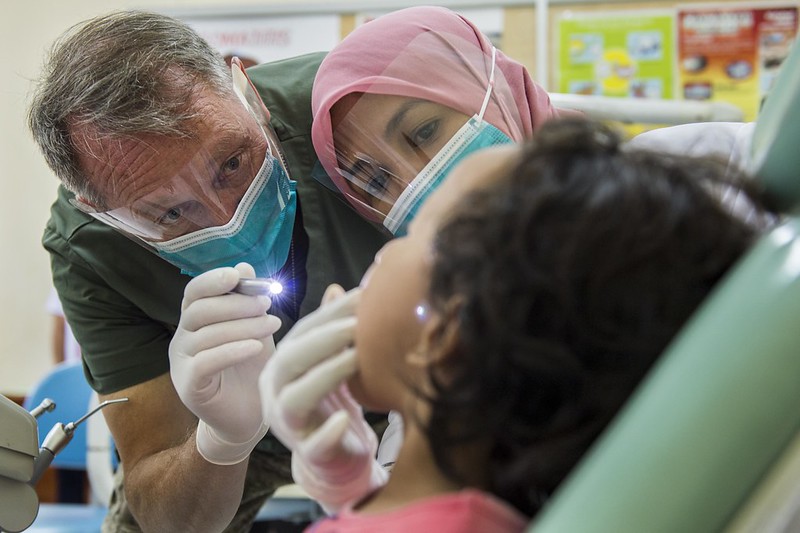An interesting article titled “Patients’ comfort with and receipt of health risk assessments during routine dental visits: Results from the South Atlantic region of the US National Dental Practice-Based Research Network” written by Y. Guo and et. al. appears in the Community Dentistry and Oral Epidemiololgy (vol. 00, pp. 1–10, 2022). In the article the authors seek to better determine the comfort level patients have with with health risk assessments (HRAs) and ascertain factors associated with the provision of HRAs.

In the article, the authors conducted a cross-sectional study of 30 actively licensed dentists that were recruited out of 469 dentists in the South Atlantic Region of the US National Dental PBRN and recruited 30 patients each seen between January and March 2018. Each patient was asked to complete a questionnaire before and after their dental visit. The pre-questionnaire consisted of 19 questions while the post-questionnaire consisted of 6 questions and the patients submitted them in a sealed envelope in a lockbox in the dental office to ensure anonymity. The pre-questionnaire consisted of questions regarding the patients comfort level of discusing tobacaco use, alcohol use, dietary sugar intake, HIV status, HPV status and if they had any existing medical conditions. The pre-questionnaire also asked patients if they had seen a medical doctor in the last 1 year and for their age, gender, race, ethnicity, highest level of education, zip code they resided in, and if they had dental insurance. The post-questionnaire asked if the dentist had done any health risk assessments related to tobacco use, alcohol use, sugar use, sexual behaviors, and exisiting medical conditions during the visit.
A total of 857 of the 900 patients completed both the pre-questionnaire and post-questionnaire and thus were included in the analysis for the study. The average age of the patients was 51.7 years with 61% of the patients being female and 56% being non-hispanic white ethnicity. The authors found that only 4% of the patients in the study reported not being comfortable with discussing any of their risk factors during a health risk assessment. Over 90% of patients indicated they were comfortable discussing their sugar intake while 19% and 21% of patients were comfortable discussing their HIV and HPV status respectively with the other factors falling in between these percentages. A total of 53% of patients reported that they did not receive any health risk assessment in the current dental visit. Further only 29% of patients indicated that they had recieved a health risk assessment on 2 or more of the factors asked in the questionnaire. Patients reported that they were asked 35% of the time about chronic conditions, 28% of the time about tobacco use, 24% of the time about sugar intake, 21% of the time about alcohol use, and 8% of the time about sexual risk behaviors during the dental visits.
The authors state:
“…more than half (53%) of the patients reported that they did not receive any HRAs during their appointment for a regular check-up or dental screening… It is noteworthy that receiving HRAs was significantly associated with both patient and dentist factors, with female patients being less likely to receive HRAs for more than one health risk as well as for particular types of risks, including tobacco and alcohol use, relative to men.”
The authors note several limitations of the study including that patients were not required to report the number of years they had been seeing their dentists. Further it is possible that some dental practices had prior knowlege about a patients medical history and thus may have been more likely to conduct a health risk assessment for this during the visit.
The authors feel that the study shows that dentists are missing opportunities to screen patients for health risk behaviours and chronic conditions. The authors feel that their results show dental practitioner should be made aware that conducting HRAs is within their scope of practice and that dental patients more comfortable receiving HRAs then they might think. This could also help to better integrate medical care and dental care which many policymakers, clinicians, insurance providers and communities are advocating for.

This is a concerning but not entirely surprising revelation. Our oral health is intricately connected to our overall well-being, and it’s crucial for dentists to play an active role in health risk screening. The partnership between DDSmatch and dental professionals to address this gap is commendable. Regular dental check-ups should encompass more than just tooth and gum health. Dentists can potentially detect signs of systemic health issues, making them a valuable ally in preventive healthcare. It’s encouraging to see efforts to enhance health risk screening in dentistry, and I hope this partnership will lead to better patient outcomes and greater awareness of the holistic importance of oral health.